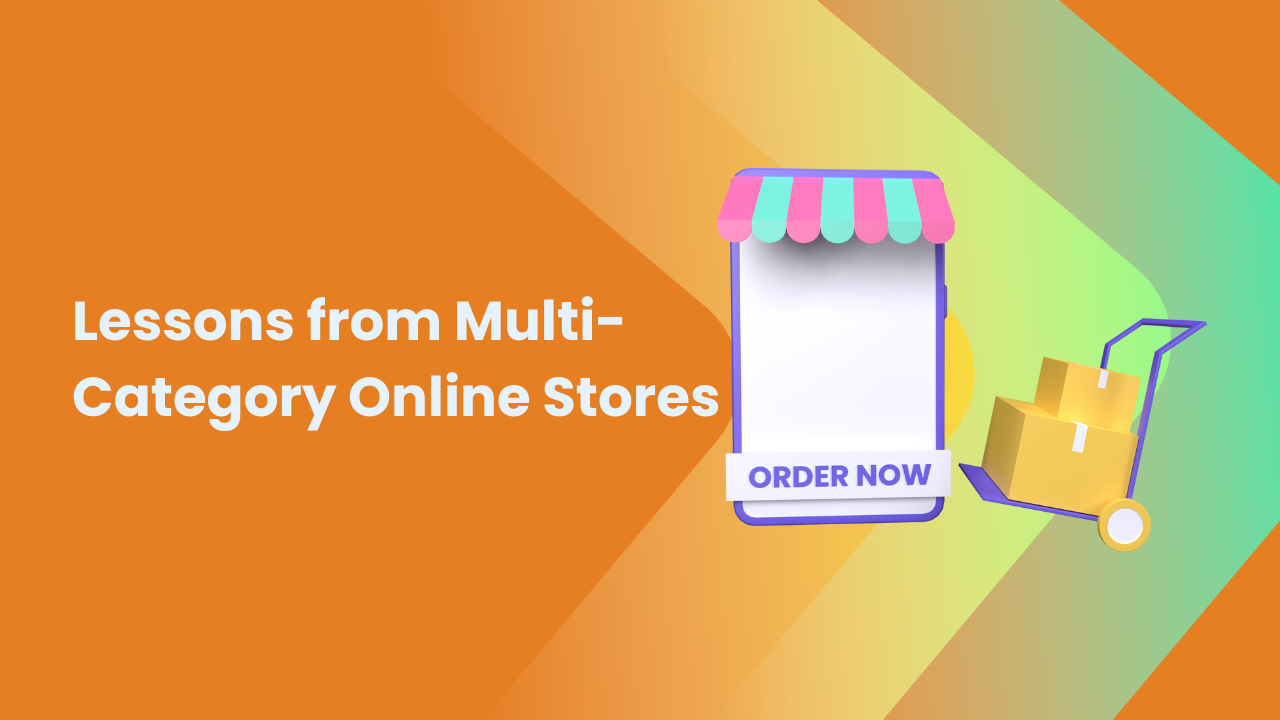Share this Article
As digital transformation accelerates across Nepal, businesses are increasingly seeking ways to streamline operations, scale efficiently, and deliver better customer experiences. One of the most transformative solutions emerging in this landscape is the Online Business Operating System (Online BOS). Much more than traditional software, an Online BOS serves as the digital backbone of a company—integrating commerce, operations, communication, and analytics into one unified platform.
Whether you're running an e-commerce store, a logistics company, or a service-based business, an Online BOS can centralize control over your operations and help you grow with clarity. But what exactly is an Online Business Operating System, and how can it revolutionize the way Nepali businesses function?
What is an Online Business Operating System?
An Online Business Operating System is a digital platform that combines essential tools needed to run a modern business into a single, cloud-based environment. It’s not just one piece of software—it’s a coordinated ecosystem that can include inventory management, invoicing, customer relationship management (CRM), online store builders, POS systems, team collaboration, marketing, and reporting tools.
Unlike stand-alone apps that only address specific needs (like accounting software or a sales tracker), a BOS is holistic. It connects all business functions together, allowing for seamless data flow, real-time monitoring, and smarter decision-making.
In Nepal, where businesses often rely on fragmented tools and manual processes, adopting a BOS can mean the difference between stagnation and sustainable growth.
Why Traditional Tools Fall Short
Most businesses in Nepal begin their digital journey with basic tools—Excel spreadsheets, free invoice generators, local accounting apps, or Facebook for sales. These tools are simple and accessible but offer limited scalability and lack integration. Over time, using multiple disconnected apps creates several issues:
- Duplicate Data Entry: Sales entered on one platform must be copied into another for accounting or reporting.
- Human Error: Manual handling increases the chances of mistakes in orders, stock levels, or customer info.
- No Central Control: Business owners struggle to monitor all parts of their operation from a single dashboard.
- Poor Collaboration: Teams work in silos with no real-time coordination between sales, fulfillment, and support.
An Online BOS solves all of these problems by bringing your business under one roof.
How an Online BOS Works
Think of an Online Business Operating System as the digital nervous system of your company. It connects various departments and workflows—finance, logistics, sales, inventory, marketing—into one platform. When a sale is made, inventory is automatically updated, an invoice is generated, the customer receives a notification, and the financial records are updated—all without human intervention.
Here’s what a typical Online BOS might include:
- Admin Portal: Centralized control over products, orders, settings, users, and analytics.
- Customer Portal: A modern web or mobile store for users to browse, buy, and track their orders.
- POS System: For handling offline transactions in sync with online stock.
- Invoicing & Tax Compliance: Auto-generated VAT-compliant invoices.
- Logistics & Delivery: Integrated order tracking, shipping labels, and delivery coordination.
- Customer Support Module: Real-time support through chat, phone, or email.
- Marketing & SEO Tools: Built-in features to run email campaigns, offers, and improve search visibility.
- Multi-Device Access: Operate your store from a PC, tablet, or smartphone—anywhere.
The power lies in the integration. Each module communicates with others in real time.
Advantages for Nepali Businesses
Adopting a Business Operating System is particularly impactful for Nepal due to the unique challenges local businesses face: limited technical manpower, low digital literacy in rural areas, logistical difficulties, and diverse business types.
1. Simplified Digital Adoption
For a business with no prior tech experience, learning multiple tools is overwhelming. BOS platforms like Saauzi Smart Solutions offer intuitive dashboards where even first-time users can manage their store, orders, and inventory with ease. Built-in guides, language localization, and Nepali tax formats make onboarding easier.
2. Scalability from Local to Global
Whether you’re selling handicrafts from Palpa or running a fashion label in Kathmandu, an Online BOS can help you scale. As your business grows, you don’t need to switch platforms or invest in new software—just upgrade modules as needed. You can start small and expand gradually.
3. Real-Time Visibility
Most Nepali business owners lack real-time visibility into operations. An Online BOS offers a live dashboard where you can monitor daily sales, best-selling products, stock levels, revenue trends, and customer behavior—all from your phone.
4. Cost Efficiency
Using multiple software tools often ends up being more expensive. You pay separately for a website, invoicing app, CRM, and so on. With an Online BOS, everything comes bundled in one system at a transparent monthly fee—making it more economical in the long run.
5. Local Integration
The best BOS platforms in Nepal integrate with local payment gateways like eSewa, Khalti, Fonepay, and banks. They also support delivery partners, VAT invoice formats, and multiple regional languages, offering a solution tailored for the local market.
Who Should Use an Online BOS?
An Online BOS is not just for e-commerce. Any business that handles operations, transactions, and customer engagement can benefit:
- Retailers: Manage inventory, multi-store pricing, and POS.
- Wholesalers & Distributors: Track bulk orders, pricing tiers, and logistics.
- Service Providers: Schedule appointments, invoice clients, and manage subscriptions.
- Logistics Companies: Handle parcel intake, barcode tracking, and customer updates.
- Startups & D2C Brands: Launch and manage online sales without coding.
Even government cooperatives and agro-firms are adopting BOS solutions to improve transparency and reporting.
When Is the Right Time to Implement?
The best time to switch to a BOS is before you outgrow your current system. If you face any of the following, it’s time to consider a BOS:
- Your team is overwhelmed by repetitive manual tasks.
- Customers complain about delays or lack of updates.
- You can’t track real-time sales or stock.
- Your online and offline systems aren’t synced.
- You want to expand, but your current tools can’t keep up.
Migrating early ensures a smoother transition and builds a strong foundation for future growth.
Common Misconceptions About Online BOS
Many Nepali entrepreneurs hesitate to adopt such systems due to a few myths:
- “It’s only for big companies.” In reality, BOS platforms are now accessible to small and mid-sized businesses too.
- “It will be too complicated to use.” With modern UX design, even non-technical users can learn quickly.
- “It’s expensive.” Most BOS systems are subscription-based and more cost-effective than buying separate tools.
- “I’ll lose control.” Actually, you gain more control by seeing all your business data in one place.
The Future of Business Operations in Nepal
The rise of digital infrastructure, 5G networks, mobile penetration, and government digitization means that more businesses will need to operate online. An Online Business Operating System is the ideal bridge between traditional business models and the digital-first future.
AI features will soon automate tasks like inventory reordering, sales prediction, and customer support. BOS platforms will integrate with IoT devices, voice assistants, and global marketplaces—enabling Nepali businesses to compete on the world stage.
Conclusion
An Online Business Operating System is no longer a luxury—it’s becoming a necessity for modern enterprises in Nepal. By unifying key functions like sales, inventory, logistics, and customer engagement, BOS platforms empower businesses to operate with speed, accuracy, and confidence.
Whether you’re a new entrepreneur or a growing SME, adopting an Online BOS can save time, reduce costs, and improve customer satisfaction. The key is to choose a platform that fits your business type, is locally supported, and offers room to grow.
In a rapidly changing economy, those who digitize early and build smart systems will lead the way. The question is no longer “Should I go online?” but rather, “How can I operate better once I am?”
If you're building your business for the future, the answer may very well lie in choosing the right Online Business Operating System—one that scales with your vision, understands the local context, and equips you for success in the digital age.
Categories:
E-commerce Tips & Tutorials
,
Marketing & Growth
,
SEO & Content Marketing
,
Beginner’s Guides
,
Sales & Conversion
,
Success Stories & Case Studies
,
Platform Features & Updates
,
Platform Comparisons
,
Design & UX Best Practices
,
Industry Trends & News
Tags:
Online Store in Nepal
,
5 Simple Steps
,
local businesses
,
e-commerce app
,
Small Business
,
strong brand
,
E-commerce
,
Role of Social Media
,
Growing sales
,
strategies
,
Social media
,
Logistics
,
Delivery Networks
,
Flexible Delivery
,
Mobile Platforms
,
Web
,
SEO
,
search engine optimization
,
Global E-commerce
,
Nepali businesses
,
reviews and ratings
,
Dropshipping
,
picture
,
Photography
,
Fraud prevention
,
E-commerce fraud
,
Influencer marketing
,
Boost
,
festival season







